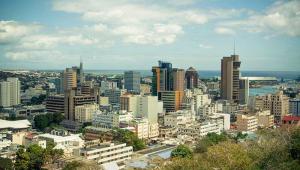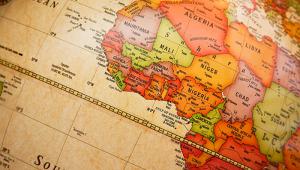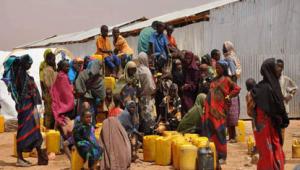While the fund said it still predicts a rebound for sub-Saharan Africa – after it suffered its lowest growth in two decades last year (1.4%) – that will be 0.3 percentage points lower than it was expecting in October last year.
“The overall weak outlook partly reflects insufficient policy adjustment,” said Abebe Aemro Selassie, director of the IMF’s African department, referring to the balance of spending and tax changes needed to resolve budget deficits in a number of the region’s economies.
“The delay in implementing much-needed adjustment policies is creating uncertainty, holding back investment, and risks generating deeper difficulties in the future,” he continued.
He highlighted resource-intensive countries such as Angola and Nigeria, criticising the fact they are still struggling with revenue losses and issues in areas like foreign exchange some three years after the fall in oil price that triggered their economic difficulties.
Rather than cutting spending, Nigeria has opted to issue progressively larger budgets in a hope that its investment will revive the country’s flagging economy, emerging from its first recession in 25 years. Meanwhile, it has resisted the fund’s calls for a removal of restrictions to foreign exchange rates.
Meanwhile, non-commodity exporting countries have also “maintained elevated fiscal deficits for a number of years”, despite continued high growth rates, as governments sought to address social and infrastructure gaps, Selassie said.
While he noted that this was the right thing to do, as a result the countries are becoming less prepared for any fiscal or economic shock and public debt is on the rise.
The fund underscored this will become even more problematic in the event of quicker-than-expected interest rate rises in the US, which will increase the costs of servicing dollar-denominated debt and restrict many African governments’ access to finance.
While, on the upside, sub-Saharan Africa can expect a significant boost to growth this year, driven largely by one-off factors in the countries three largest economies, the fund stressed this will barely put the region back on a path of rising per capita income.
Meanwhile, potential security issues and the threat of looming famine in parts of the region threaten to knock even the modest outlook off track.
Selassie urged governments to take “strong and urgent” action to restart growth where it has faltered and preserve the momentum elsewhere.
In the hardest-hit countries, he called for a robust effort to cut spending and increase revenues from tax or other sources.
Both the IMF and the World Bank have trimmed their forecasts for sub-Saharan African growth, with both now expecting a 2.6%, rather than 2.9%, expansion.














